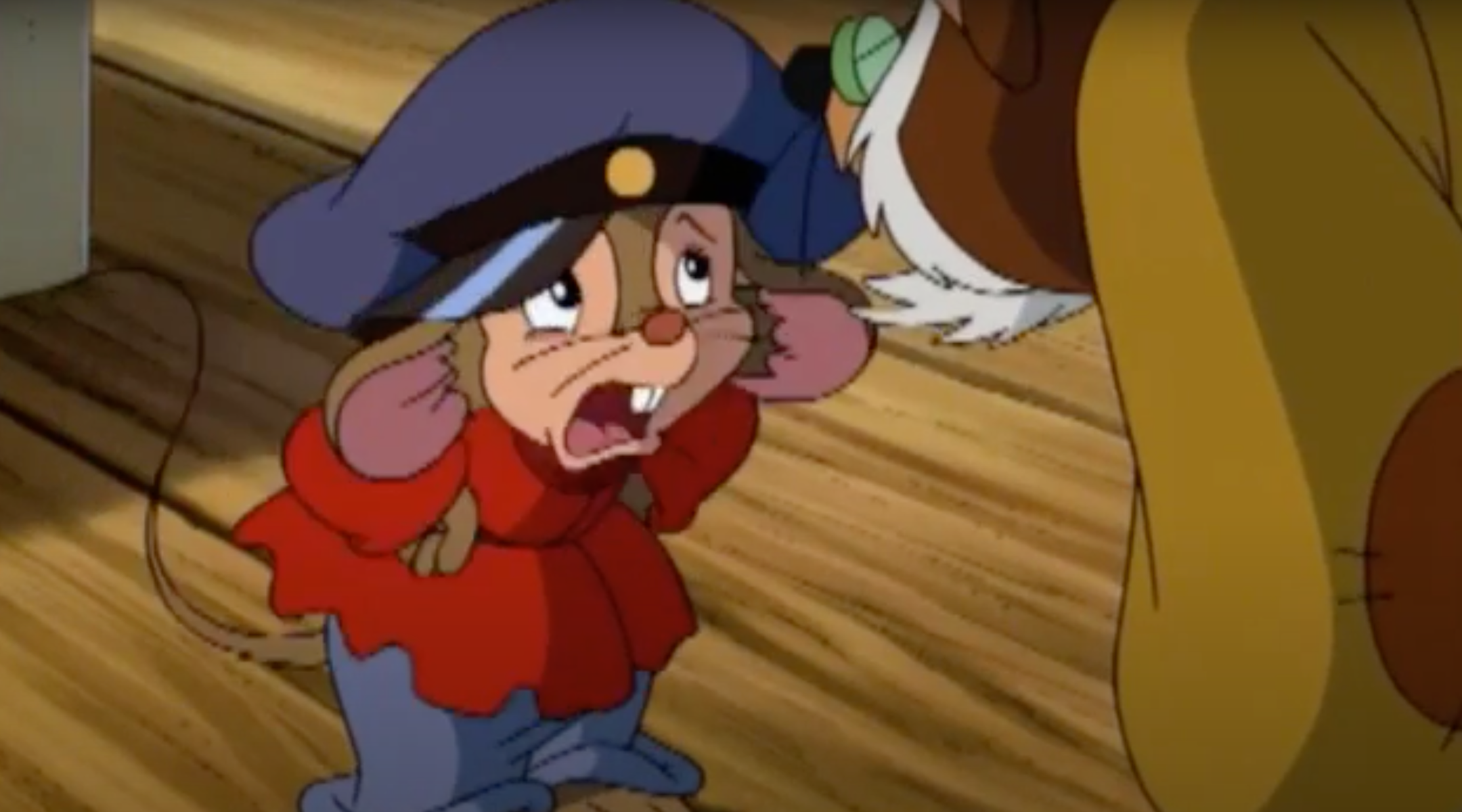What’s a nice Jewish cartoon character like Fievel Mousekewitz doing in places like these?
The rodent star of Steven Spielberg’s new animated film “An American Tail” is the centerpiece of two major Christmas sales promotions, both apparently with Spielberg’s blessing.
At more than 7,000 McDonald’s restaurants across the United States, Fievel is pictured on four facsimile-stocking Christmas tree ornaments, each given free to purchasers of a $5 book of gift certificates.
The books also contain a coupon for $5 off a $25 Fievel doll at 801 Sears department stores nationwide. Sears has exclusive rights to sell merchandise based on the movie’s characters, according to James Podany, director of marketing communications for Sears Roebuck and Co., Chicago.
Sears is placing the characters on a variety of children’s products as a draw for sales during the Christmas season, however, Podany insisted that Fievel is not pictured on any Christmas-related items such as a wreath or tree ornament.
‘ILL ADVISED’ AND ‘TACKY’
The use of an identifiably Jewish character to boost Christmas sales is incongruous to say the least, isn’t it? “I think it’s ill-advised” and “tacky,” said Dr. Eliot Spack, executive director of the Coalition for Alternatives in Jewish Education. He noted that he was expressing his own opinions, not his organization’s policy.
However, he told JTA that the Fievel campaigns did not pose major assimilation problems for Jews. “I’m not personally worried that we’re going to lose thousands of Jews over it,” he said, explaining that children won’t easily identify the mouse as Jewish, since Fievel is an uncommon Jewish name.
He chalked up the Fievel promotions to capitalism. “Chanukah and Jewish linkages have clearly been exploited for many years” in the promotion of Christmas and non-religious events, he added.
Spokespeople for the companies involved, in interviews with JTA, denied any tackiness or incongruity in the use of Fievel.
Podany of Sears said the Fievel-centered campaign appears at Christmas-time only to concur with the release of the movie.
Marvin Levy, a consultant to Spielberg’s Amblin Entertainment and Universal City Studios, Inc., both of Universal City, Calif., acknowledged that Fievel is Jewish and even receives Chanukah gifts in the film, but he said the film is less a Jewish story than one of immigration that fosters universal American values such as the “melting pot.”
“No one thought of it with a religious significance,” he said of the many Jews, including himself and Spielberg, among the leadership of Amblin and Universal. “We would probably be as sensitive as anybody,” he added.
But might not children who see the film and then see the character pushing Christmas sales get the wrong impression of Judaism? “I really don’t think so,” he said. “I don’t think anybody here thought of it as being as much of a Christmas promotion as a (generally ecumenical) holiday promotion.” According to Terri Capotosto, media relations manager for McDonald’s Corp., Oak Brook, III., the movie represents American values of inter-cultural understanding, hope and family heritage.
Moreover, both Capatosto and McDonald’s customer relations representative Chris Garrity noted that families can participate in the Fievel promotion without getting involved in Christmas. Scenes from the movie decorate the packages of McDonald’s meals for children from November 24-December 24, which sends week is accompanied by a different Fievel storybook.
NO OFFENSE INTENDED
She said she didn’t see anything wrong with placing Fievel on the Christmas tree ornaments, and added that McDonald’s employees, including Jews, had discussed the issue at length, concluding that Fievel transcended any one ethnic group.
But she said, “We certainly apologize if someone has misinterpreted (the Fievel ornaments) … We obviously wouldn’t do anything that would offend anybody.”
JTA has documented Jewish history in real-time for over a century. Keep our journalism strong by joining us in supporting independent, award-winning reporting.
The Archive of the Jewish Telegraphic Agency includes articles published from 1923 to 2008. Archive stories reflect the journalistic standards and practices of the time they were published.




